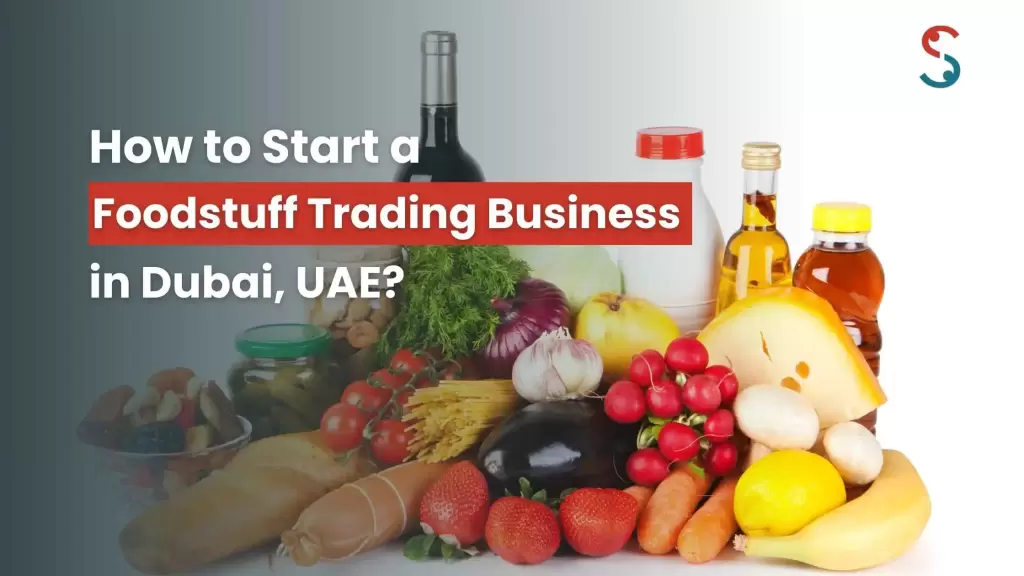Dubai is a global hub for foodstuff trading, with a significant share of the Middle East and Africa (MEA) region's food imports and exports passing through the city. The UAE is a major importer of food products, with over 80% of its food needs met through imports.
Dubai is the main entry point for food imports into the UAE, and it is also a major hub for the re-export of food products to other countries in the region.
The foodstuff trading industry in Dubai is highly competitive, but it also offers significant opportunities for businesses of all sizes. The growing population of the UAE and the increasing demand for high-quality food products are driving the growth of the industry.
Therefore, we are here to provide you with essential steps and insights on how to start a foodstuff trading business in Dubai.
Foodstuff Trading Business Market in Dubai
2025, the UAE's food and beverage imports were valued at AED 142 billion (USD 38.5 billion). This is expected to grow to AED 190 billion (USD 52 billion) by 2041.
The UAE imports a wide range of food products, including cereals, fruits and vegetables, meat, dairy products, and processed foods. The top five food import categories in 2026 were:
- Fruits and vegetables: Fruits and vegetables are the largest segment of the foodstuff trading market in Dubai. Dubai imports fruits and vegetables from all over the world, and they are re-exported to other countries in the region.
- Meat and poultry: Meat and poultry are another important segment of the foodstuff trading market in Dubai. Dubai imports meat and poultry from countries such as Australia, Brazil, and India.
- Dairy products: Dairy products are also a significant segment of the foodstuff trading market in Dubai. Dubai imports dairy products from countries such as New Zealand, Australia, and Europe.
- Cereals and grains: Cereals and grains are another important segment of the foodstuff trading market in Dubai. Dubai imports cereals and grains from countries such as the United States, Canada, and Australia.
- Processed foods: Processed foods are also a significant segment of the foodstuff trading market in Dubai. Dubai imports processed foods from all over the world, and they are re-exported to other countries in the region.
- The UAE's strategic location is at a crossroads between Europe, Asia, and Africa.
- The UAE's favourable business environment with low taxes, simple regulations, and world-class infrastructure.
- The growing population of the UAE and the increasing demand for high-quality food products.
- The UAE government's support for the foodstuff trading industry.
How to Start a Foodstuff Trading Business in Dubai, UAE
Starting a foodstuff trading business in Dubai involves several steps and careful planning to ensure a successful launch. Here is a step-by-step process to guide you through the journey:
1. Business Planning
Define your business concept and niche. Decide on the types of food products you want to trade. Create a comprehensive business plan that includes business vision, marketing strategies and financial projections.
2. Choose the Right Legal Form for Your Business
You can choose to set up your business as a limited liability company (LLC) in Dubai mainland, or a free zone company.
- Mainland companies are registered with the Dubai Department of Economic Development (DED) and can operate anywhere in the UAE. Mainland companies are subject to all UAE laws and regulations, including taxes.
- Free zone companies are registered with a free zone authority and can operate within the free zone where they are registered. Free zone companies are exempt from most UAE taxes and regulations.
3. Register Your Business and obtain a license
Obtain the necessary licenses and permits from the Dubai Department of Economic Development (DED) or relevant free zone authority and acquire a trade license.
You may also be required to obtain necessary licenses such as a foodstuff trading license in Dubai from the Dubai Municipality. This license is required for all businesses that trade in food products. To obtain a foodstuff trading license in Dubai, you also need to meet certain requirements as required by the relevant authorities.
4. Sourcing Suppliers and Products
Find reliable suppliers for the food products you intend to trade. Negotiate contracts and pricing terms with suppliers. Build strong relationships with suppliers to ensure a consistent supply of quality products.
5. Distribution and Logistics
Establish an efficient supply chain for sourcing, storing, and distributing food products. Implement effective inventory management practices. Arrange transportation and distribution strategies to deliver products to your customers promptly.
6. Arranging visa
If you are a foreign entrepreneur planning to establish a foodstuff trading business in Dubai, you will need a visa to reside and conduct business in the UAE. Ensure that you have the appropriate visa to operate your business legally and without any interruptions.
Vegetable trade in Dubai
Vegetable trade in Dubai is a booming area of business in Dubai mainland as most of the vegetables are imported from other countries. However, executing your vegetable business plan requires some formalities to be completed and a few conditions that have been set by the Dubai municipality have to be adhered to. Setting up a vegetable trading business in Dubai gives one a chance to reach out to a bigger consumer market.
People from all over the world are traveling to Dubai either as tourists or immigrants, in order to set up a vegetable trading business, one needs to register the business with the relevant authorities in Dubai which otherwise accounts for a violation of the law.
For setting up a vegetable business in Dubai one has to obtain a license from DED i.e., the Department of Economic Development. Once the license is obtained the business can be started. Afterwards, the owner has to take care of things like containers which have to have a material that can tackle the problem of contamination.
Cost of Establishing a Foodstuff Trading Business in Dubai
The cost of establishing a foodstuff trading business in Dubai typically starts at around AED 12,000 and AED 30,000, depending on several factors, including the size of the business, the type of food products being traded, and the Location of the business.
To know the estimated foodstuff trading license cost in Dubai, it is highly recommended to get in touch with a Dubai business setup consultant like Shuraa India who has over 25+ years of experience in assisting business setup in Dubai and the UAE.
Get your foodstuff trading license with Shuraa India
Dubai is a flourishing city with a strong economy, making it an ideal place to start a foodstuff trading business. However, company formation in Dubai can be a daunting task, but it is essential to remember that you are not alone. There are many resources available to help you start your business, including business setup experts like Shuraa India.
With extensive experience in company formation and business support services, Shuraa India can simplify the process. Whether you need assistance with license applications, VAT registration, PRO services, visa arrangements, or investor rights, Shuraa is your one-stop shop for all your business establishment needs.
Reach out to us for a free consultation and guidance on your entrepreneurial journey.
Your dream of a successful foodstuff trading business in Dubai is closer than you think!Author
-

Kajol is a skilled writer and UAE corporate advisor with deep expertise in business consulting. She specializes in guiding entrepreneurs, simplifying UAE business setup, and navigating local regulations, market trends, and cultural nuances. Through her insightful blogs and practical advice, Kajol helps Indian and global entrepreneurs establish and grow their businesses in the UAE efficiently and successfully.
